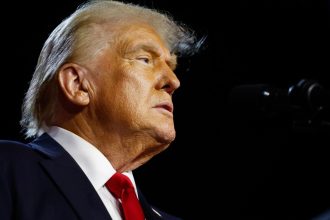Retailers Hate That You Buy Big Things on Your Laptop
Shoppers want to make significant purchases on their laptops. Retailers really want them to do more on their phones. Lately, the retailers are winning more often. Mobile e-commerce has for years been hailed as the future of shopping. Online shops as well as airlines and hotels have upgraded and pushed apps or mobile-optimized websites as a way to get our attention—and access to our wallets. By using push notifications, mobile-only deals and other levers, vendors can tempt customers to make quick, unplanned purchases. It’s finally working, as this past holiday season was the first time mobile-revenue share surpassed desktop, reaching 61% on Christmas Day, according to data from Adobe. The laptop’s extra friction makes shoppers more careful: Many people say they have moved too fast on a phone, accidentally buying the wrong plane tickets. [The Wall Street Journal]
CFPB Wants to Ban Medical Debt from Credit Reports
The CFPB wants to reduce the financial fallout from unpaid medical debt, a growing problem in the U.S. This week, the agency proposed a rule that would remove medical debt from most credit reports. This would boost credit scores for millions of Americans, and prevent debt collectors from using the credit reporting system to pressure people into paying bills for debt they may not owe. In announcing the proposed rule, the CFPB said the new rule would help increase credit scores and loan approvals, stop credit reporting companies from sharing medical debts with lenders, and prohibit lenders from making lending decisions based on medical information. [Consumers’ Checkbook]
Federal Reserve Holds Interest Rates Steady, Lowers Forecast to 1 Rate Cut in 2024
The Federal Reserve held interest rates at a 23-year high Wednesday while scaling back its estimate of rate cuts this year to one from three previously. The central bank voted to keep its benchmark interest rate in a range of 5.25%-5.50% at the conclusion of its two-day policy meeting. The fed funds rate has been in this range since July 2023. At the same time Fed officials boosted their collective forecast for the number of cuts expected next year. They now see a median of four additional rate cuts happening in 2025. That is up from a prior forecast of three. [Yahoo Finance]
Credit Card Delinquencies Are Rising
Seriously overdue credit card debt is at the highest level in more than a decade, and people 35 and under are struggling more than other age groups to pay their bills. The share of credit card debt that’s severely delinquent, defined as being more than 90 days overdue, rose to 10.7% during the first quarter of 2024, according to the Federal Reserve Bank of New York. A year ago, just 8.2% of credit card debt was severely delinquent. [Associated Press]
Affirm Buy Now, Pay Later Loans Will Be Embedded Into Apple Pay Later This Year
Apple device users will soon be able to tap into buy now, pay later loans from Affirm for purchases. Affirm will surface as an option for U.S. Apple Pay users on iPhones and iPads later this year. The move is a boost to Affirm and the buy now, pay later sector in general. When Apple introduced its own BNPL product last year, investors were concerned that the tech giant would crowd out stand-alone providers like Affirm. But the fact that Apple decided to also allow Affirm products in its ecosystem shows that the fintech company has something unique to offer. [CNBC]
Visa Relaunches SavingsEdge Discount Program for Small Businesses
Visa has relaunched its SavingsEdge program, aimed at helping small businesses. The SavingsEdge program now includes a refreshed program website with greater features and functionality, as well as hundreds of added merchant offers via Instant Coupons and Cashback Offers in more categories. SMBs can also get notifications in real-time when participating cardholders earn cashback on qualifying transactions, as well as a cashback tracker to see how much they saved. [PYMNTS]
Buy Now, Pay Later Products to Be Treated Like Credit Cards, CFPB Says
The CFPB will apply credit card rules to Buy Now, Pay Later products. As a result, BNPL lenders must follow the federal Truth in Lending Act and Regulation Z rules that apply to credit cards, according to a CFPB statement. That means consumers will be afforded some critical legal protections and rights that apply to conventional credit cards. These include a right to dispute charges and demand a refund from the lender after returning a product purchased through a BNPL service. A CFPB report released in 2022 found that more than 13% of BNPL transactions involved a disputed charge or a return. [Fox Business]
New Wells Fargo Attune Card: 4% Cash Back Categories, $100 Bonus and More For No Annual Fee
The Wells Fargo Attune World Elite Mastercard is currently offering new cardholders a welcome bonus of $100 cash rewards after spending $500 in qualifying purchases in the first three months. New cardholders will also receive an introductory 0% APR on purchases during the first 12 months from account opening. The Attune earns an impressive 4% cash back on categories we rarely see with rewards cards: self-care purchases, including gym memberships, exercise classes, salons and spas; select sports, recreation, and entertainment including live shows and sporting events, gardening and floral stores, pet supplies, boarding and grooming; and on “impactful” and planet-friendly purchases like public transit, EV charging stations and select thrift stores. Cardholders earn 1% on other purchases. [CNBC]
Man Sentenced in Sacramento For Nationwide Target Gift Card Scam
A man convicted in a nationwide Target gift card scam worth up to several million dollars has been sentenced after being arrested in Sacramento. Sentencing was passed down to Ningning Sun on Tuesday after he was found to be a “runner” for a supposed organized crime network that was running scams on Target gift cards from the West Coast, Midwest and deep South. “The cards were in bags labeled ‘done’ and ‘not complete’,” the district attorney said. “The cards in the ‘done’ bag contained gift cards that had been tampered with and ready to be reshelved so money could be siphoned off them once a customer bought them. The cards in the ‘not complete’ bags contained cards that were not yet tampered with.” [Fox 40]
Read the full article here














